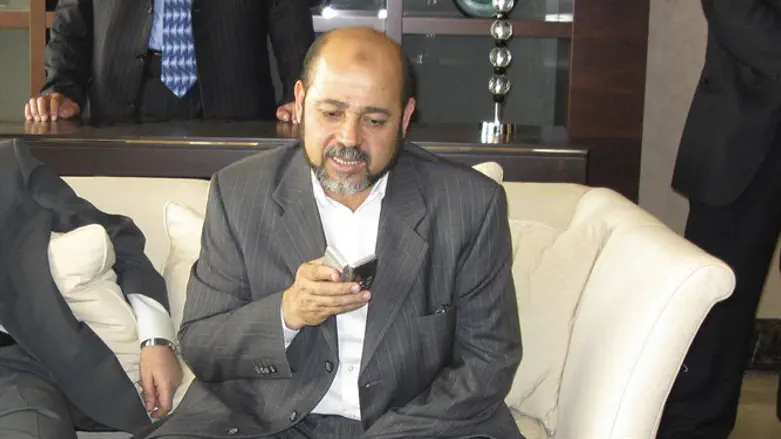
Mousa Abu Marzouq, a member of the Hamas political bureau and a senior member of the movement's leadership, accuses Israel of failing to agree on an exchange deal in which IDF soldiers and missing Israelis will be returned in exchange for the release of Palestinian Arab security prisoners.
In an interview with the Turkish Anadolu news agency, Abu Marzouq said that Israel had made a move with Egypt regarding the exchange deal due to domestic pressure on the government, but it was not enough and did not give the impression of seriousness.
Hamas, he added, is determined to reach a respectable deal in accordance with the conditions it presented and a deal can be reached within a few weeks if there is a will in Israel and it meets Hamas' demands.
He stressed that Hamas would not be flexible and would not agree to tie the deal to lifting the siege on the Gaza Strip or rehabilitating the Strip.
Abu Marzouq also said that among the terrorists at the top of the list of prisoners that Hamas is demanding their release are Marwan Barghouti who is widely believed to have planned the Second Intifada, Ahmad Sa'adat who was accused of planning the 2001 assassination of Tourism Minister Rehavam Ze'evi, and the six prisoners who escaped from the Gilboa Prison.
The Hamas leader noted that the possibility of reaching a long-term truce with Israel did not come up in talks recently held by the Hamas delegation in Cairo, and Hamas continues its activities to bring about the lifting of the siege on the Gaza Strip.
In this context, Abu Marzouq said that Egypt had promised to expedite the reconstruction of the Gaza Strip and an agreement was reached with it on the construction of three new cities in Gaza, as well as plans for road development, main intersections and the bringing in of raw materials through the Rafah crossing. At the same time, $50 million in rehabilitation and development projects funded by Qatar are also being implemented.
On another issue, Abu Marzouq stressed that Jerusalem is at the heart of the conflict with Israel and harming it or the holy sites is a "red line" that will lead to a violent reaction by Hamas regardless of the price.